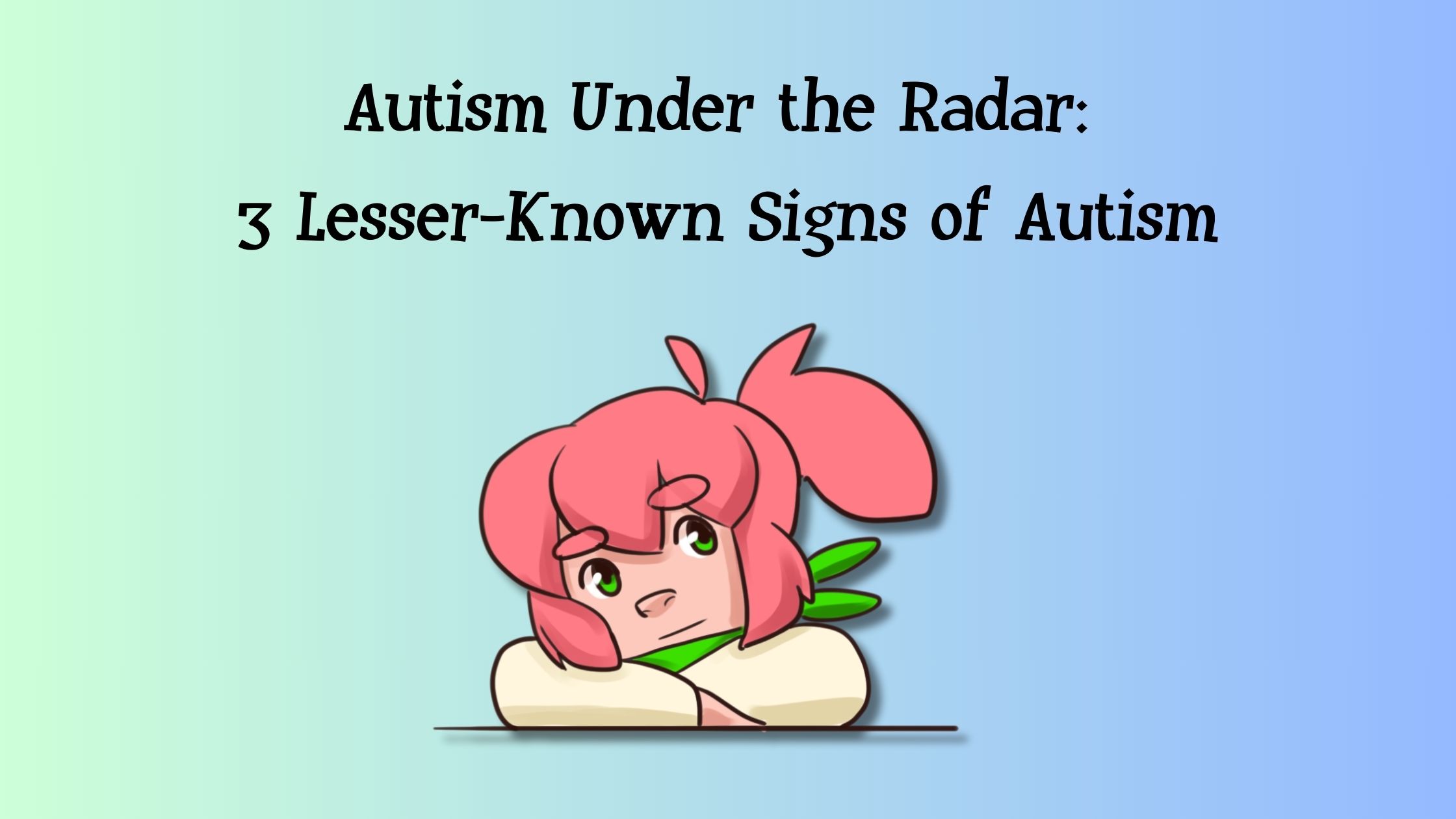
Undiagnosed autistic students are often overlooked because they do not exhibit the stereotypical signs of autism. Although educators cannot diagnose students, they play a large role in gathering the evidence psychologists use to make diagnoses. By learning about lesser-known autism characteristics, educators can advocate for early identification and ensure their students receive the resources and support they need to succeed.
Our in-house SEL consultant Dr. Lucas Harrington shared these 3 autism signs that are often overlooked:
Autism Stereotype: Obvious eccentricity
Lesser-known Autism Sign: Creating a “normal” persona
Overlooked autistic students often study well-loved classmates or fictional characters, searching for any traits—from mannerisms and clothing styles to preferences and beliefs—that might unlock the acceptance they long for. While masking/camouflaging may earn them shallow acceptance, or at least protect them from bullying, the long-term costs can be high. Many report losing their sense of self as their true feelings are buried behind the mask. Friendships without authentic connection often only add to the loneliness.
School staff should watch for overlooked autistic children among those who never want to make waves. They may avoid expressing an opinion for fear of getting it “wrong,” force themselves to put up with painful sensory experiences (such as eye contact or a noisy cafeteria), and refuse needed classroom accommodations.
Autism Stereotype: Meltdowns and challenging behavior
Lesser-known Autism Sign: School avoidance and after school restraint collapse
Overlooked autistic students often secretly struggle to hold it together at school. Thanks to social and sensory overwhelm, and often co-occurring difficulties like dyslexia or ADHD, school can be exhausting.
Their worried families may beg for an IEP or 504 evaluation, recounting the daily morning battles and afternoon meltdowns, only to hear that the child does not qualify because they are doing wonderfully at school. In reality, many children bottle up their feelings all day for fear of punishment or judgment, and then let it all out once they are safe at home.
School staff should watch for overlooked autistic students among those who dread going to school even though they seem fine once they are there. These children may be absent with no explanation or may complain of stress-related illness like headaches and nausea.
Autism Stereotype: Socially ostracized
Lesser-known Autism Sign: Socially vulnerable
Overlooked autistic students aren’t necessarily outcasts. They may be accepted by one understanding friend, or by a similarly quirky group like the anime club. But outside of these safe havens, their connections tend to be either shallow or stormy, often marked by miscommunication and hurt feelings on all sides.
While children typically learn to navigate schoolyard drama with increasingly skillful strategy over time, autistic students are often baffled by the unwritten rules throughout their teen years and beyond.
School staff should watch for overlooked autistic students among those who are tolerated by their classmates but rarely truly welcomed. Some struggle to accommodate others and patch up conflicts. Others remain trusting and obedient even to those who bully them repeatedly.
People often assume that if a child is not blatantly struggling, then a label like “autism” will only add to their hardships. But in reality many find it rewarding and freeing to know they aren’t alone. Autistic pride has flourished in recent years, providing a wealth of opportunities for people to connect with and learn from others who share their experiences. Instead of feeling like “a failure at being normal,” timely identification can help an autistic child feel like “a success at being myself.” Keep in mind, these traits are not necessarily proof of autism. They may also reflect other difficulties such as unsupported ADHD or trauma. Regardless, becoming informed can help educators advocate for their students, so they can receive the support they need to thrive.
Sources
Assessment of Autism in Females and Nuanced Presentations: Integrating Research into Practice
https://adayinourshoes.com/after-school-meltdown/
https://www.andrealoewen.ca/7-ways-help-child-handle-school-restraint-collapse/
https://www.frontiersin.org/articles/10.3389/fpsyt.2023.1237052/full?trk=public_post_comment-text
https://eprints.whiterose.ac.uk/149800/4/Girls%20with%20autism%20SLR%20%28AAM%29.pdf
https://journals.sagepub.com/doi/full/10.1177/13623613221118351
About the Author
Dr. Lucas Harrington is our SEL Consultant and co-author of the book Assessment of Autism in Females and Nuanced Presentations: Integrating Research into Practice. He is a clinical psychologist and autistic self-advocate who integrates professional expertise with lived experience and community wisdom. Dr. Harrington provides a variety of services at the University of Washington Autism Center, from diagnostic assessment to parent coaching to public speaking, and will soon help train professionals in supporting neurodivergent families as a student coach in Robyn Gobbel’s “Being With” program.
.png)


